armed forces
Canadian military members speak out after being told chaplains shouldn’t use ‘God’ in public prayers
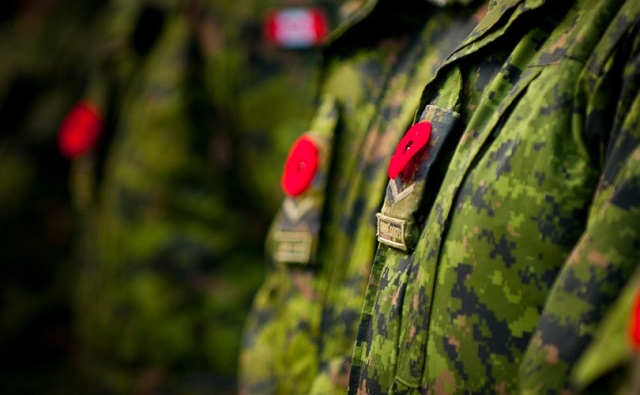
From LifeSiteNews
‘Freedom of religion, I’m afraid, is slowly being replaced by freedom from religion,’ one CAF member told LifeSiteNews.
Members of the Canadian Armed Forces (CAF) gave their exclusive reactions to LifeSiteNews this week after being told they shouldn’t call upon God during public prayers in order to prioritize inclusivity and “diversity” just weeks before the national November 11 Remembrance Day holiday. The Minister of National Defence has stated that public prayer must “reflect the spiritual and religious diversity of Canadians.”
In exclusive phone interviews with LifeSiteNews, CAF members who are known to LifeSite but have asked to remain anonymous spoke out against what they see as an increased secularization of the military.
“In a nutshell, this change is: Abolish God from the public square,” one military member said, explaining that the “ethos undergirding the document” is one emphasizing the “spiritual” rather than the “religious.”
“Freedom of religion, I’m afraid, is slowly being replaced by freedom from religion,” another CAF member told LifeSite.
Their remarks pertain to an October 11 memo signed by Chaplain General Guy Belisle and obtained by The Epoch Times that directed Canadian chaplains to “adopt a sensitive and inclusive approach when publicly addressing military members.”
“While the dimension of prayer may occupy a significant place for some of our members, we do not all pray in the same way; for some, prayer does not play a role in their lives,” the memo reads.
Any “spiritual reflection” offered by military chaplains in a public setting (not including church services or private interactions with members) must be “inclusive in nature, and respectful of the religious and spiritual diversity of Canada,” according to the directive.
Spiritual leaders are also directed to “consider the potential that some items or symbols may cause discomfort or traumatic feelings when choosing the dress they wear during public occasions.”
Minister of National Defence Bill Blair responded to news concerning the directive by emphasizing that “Canadian Forces chaplains are not – and will not be – banned from prayer on Remembrance Day, nor at any other time,” The Post Millennial reported.
However, Department of National Defence spokesman said that chaplains giving reflections in public, mandatory military ceremonies “should not use the word ‘God’ or other references to a higher power such as ‘Heavenly Father’” in order “ to ensure that all feel included and able to participate in reflection no matter their beliefs.”
Active-duty CAF members who spoke with LifeSiteNews say the new directive effectively bans theistic prayer and sets up secularism as the only acceptable religion.
One military member told LifeSite that chaplains had been allowed to call upon a theistic God in an “inclusive” manner at public events like mess dinners and the celebration of Remembrance Day under prior guidance, but under the new directive “God can’t be invoked.”
He said military chaplains are further directed to be “mindful of the Gender Based Analysis (GBA+)” in their reflections, going on to explain that GBA+ is an “analysis framework that [officials are] using to basically re-examine their policies throughout the organization” for the purposes of advancing equity within the context of gender ideology.
Under the principles, the source told LifeSite, it could even be “problematic to say ‘God’ in the masculine, like in the ‘Our Father.’”
Another CAF member told LifeSite that the new memo has made military chaplains “so afraid of saying something wrong” that “even very liberal chaplains” are “too afraid” to write their “own reflection on Remembrance Day.”
He said the authentic variety of religious beliefs – in which Christians, Jews, Muslims, and others are able to express and share their faiths – is being exchanged for secular uniformity packaged as “diversity.”
The source told LifeSite that the recent chaplaincy directive amounts to “a purging of all traditional values” and a message that “the only acceptable religion now will be secularism.”
“If we can’t even live according to our conscience, if you can’t speak truth as we see it, then we’ve lost the essence of what it means to be the military,” he said. “We’ve lost our freedom.”
The first CAF member to speak with LifeSite explained that the new directive rests on the Canadian Supreme Court’s 2015 decision Mouvement laïque québécois v. Saguenay (City), which declared that “The state must instead remain neutral” in matters “religion and beliefs.”
However, he argued that neutrality shouldn’t mean banning specific religious expressions and noted that soldiers going into battle face an entirely different set of risks than ordinary government employees, up to and including serious injury and death.
“Given the realities of soldiering and everything that comes with that, I would ask, has that not changed the equation? Does that not change things?” he said. He argued that soldiers having “spiritual tools at their disposal,” including prayers and blessings, makes the CAF “more resilient, more capable, more spiritually healthy.”
“By taking that away from people, do you have the soldier’s best interests in mind? Do you have spiritual fitness in mind? Are you playing politics? That’s my question,” he said.
armed forces
Canada’s first ‘transgender’ military chaplain suspended for alleged sexual harassment
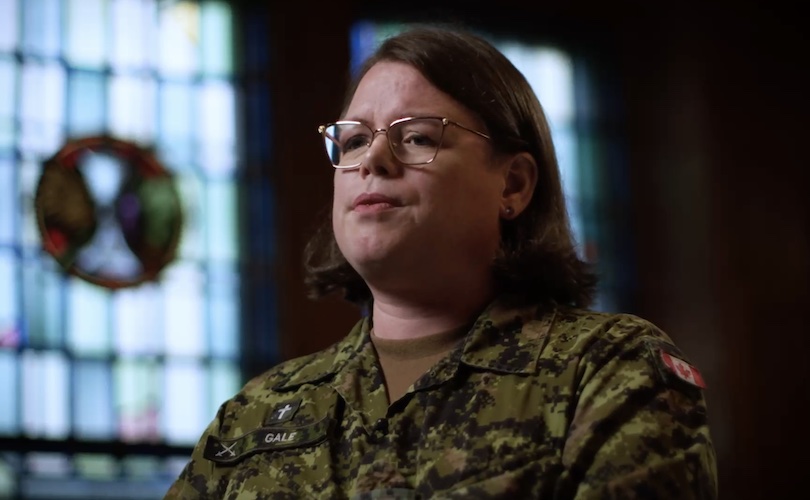
From LifeSiteNews
Canadian Armed Forces Captain ‘Beatrice’ Gale reportedly sought to grope a male soldier while drunk and was suspended just a few weeks after the Canadian military promoted him for ‘International Transgender Day of Visibility.’
Canadian Department of National Defence has suspended a “transgender” military chaplain it previously celebrated after he reportedly sought to grope a male soldier at the Royal Military College while drunk.
On March 28, the government highlighted Canadian Armed Forces Captain “Beatrice” Gale, a man who “identifies” as a woman, for “International Transgender Day of Visibility.” The military’s “first openly transgender chaplain” has been “a vocal advocate” for the so-called “rights” of transgender-identifying members, according to the press release, resulting “in policy changes that contributed to more inclusive gender-affirming medical care for CAF members.”
“I hope that being a transgender chaplain [sic] sends a message to the 2SLGBTQI+ community that the Royal Canadian Chaplain Service cares,” he said. “That it cares for that community.”
Just weeks later, however, the chaplain is generating a different kind of publicity.
True North reports that Gale’s chaplaincy has been revoked following a hearing finding he made an “inappropriate comment or request to another individual.”
Gale was determined to have violated the Queen’s Regulations and Orders by “behav[ing] in a manner that adversely affects the discipline, efficiency or morale of the Canadian Forces.” The specific details of the offense have not been officially confirmed, but, according to an anonymous source, he became inebriated at dinner and asked to grope a male lieutenant’s buttocks.
“The mandate for Captain Gale to serve as a Canadian military chaplain remains suspended. The Chaplain General will consider the implications of the summary hearing’s outcome to determine if additional administrative actions within their authority are required,” said DND spokesperson Andrée-Anne Poulin. Gale was docked two days pay and 20 days leave and is currently on administrative duty.
“If a male officer behaved in a similar manner towards a subordinate female, the situation would be dealt with differently, and the offender’s name would be leaked to the press. Unfortunately, there is a lack of equality in how the Canadian Armed Forces handle such allegations,” attorney Phillip Millar, a former combat officer who now represents Canadian soldiers, told True North.
He added that he once had a client who “was not granted the same leniency for much less serious alleged infractions. However, in the case of a transgender offender who held a position of trust as a padre and a senior in rank, the matter was simply swept under the rug.”
As is the case in the United States, Canada’s armed forces are currently struggling to attract recruits in the wake of adopting “woke” policies such as COVID-19 shot mandates, “climate change” lectures, and pro-LGBT “identity” initiatives.
The DND declared last month that increased “diversity and inclusivity” are “vital” to creating an effective military and that they “enrich the workplace.”
armed forces
Canadians are finally waking up to the funding crisis that’s sent the Canadian Armed Forces into a “death spiral”
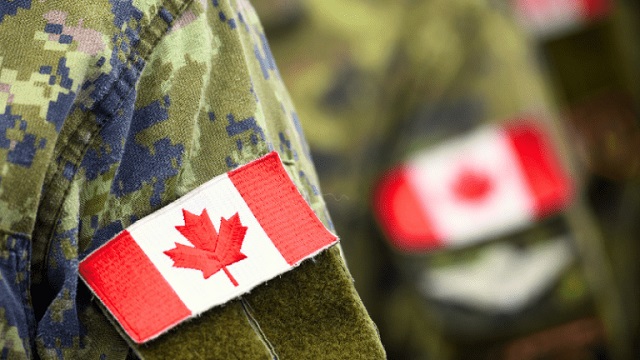
From the Macdonald Laurier Institute
By By J.L. Granatstein
Must we wait for Trump to attack free trade between Canada and the US before our politicians get the message that defence matters to Washington?
Nations have interests – national interests – that lay out their ultimate priorities. The first one for every country is to protect its population and territory. It is sometimes hard to tell, but this also applies to Canada. Ottawa’s primary job is to make sure that Canada and Canadians are safe. And Canada also has a second priority: to work with our allies to protect their and our freedom. As we share this continent with the United States, this means that we must pay close attention to our neighbouring superpower.
Regrettably for the last six decades or so we have not done this very well. During the 1950s, the Liberal government of Louis St. Laurent in some years spent more than 7 percent of GDP on defence, making Canada the most militarily credible of the middle powers. His successors whittled down defence spending and cut the numbers of troops, ships, and aircraft. By the end of the Cold War, in the early 1990s, our forces had shrunk, and their equipment was increasingly obsolescent.
Another Liberal prime minister, Jean Chrétien, balanced the budget in 1998 by slashing the military even more, and by getting rid of most of the procurement experts at the Department of National Defence, he gave us many of the problems the Canadian Armed Forces face today. Canadians and their governments wanted social security measures, not troops with tanks, and they got their wish.
There was another factor of significant importance, though it is one usually forgotten. Lester Pearson’s Nobel Peace Prize for helping to freeze the Suez Crisis of 1956 convinced Canadians that they were natural-born peacekeepers. Give a soldier a blue beret and an unloaded rifle and he could be the representative of Canada as the moral superpower we wanted to be. The Yanks fought wars, but Canada kept the peace, or so we believed, and Canada for decades had servicemen and women in every peacekeeping operation.
There were problems with this. First, peacekeeping didn’t really work that well. It might contain a conflict, but it rarely resolved one – unless the parties to the dispute wanted peace. In Cyprus, for example, where Canadians served for three decades, neither the Greek- or Turkish-Cypriots wanted peace; nor did their backers in Athens and Ankara. The Cold War’s end also unleashed ethnic nationalisms, and Yugoslavia, for one, fractured into conflicts between Serbs, Croats, Bosnians, Christians, and Muslims, leading to all-out war. Peacekeepers tried to hold the lid on, but it took NATO to bash heads to bring a truce if not peace.
And there was a particular Canadian problem with peacekeeping. If all that was needed was a stock of blue berets and small arms, our governments asked, why spend vast sums on the military? Peacekeeping was cheap, and this belief sped up the budget cuts.
Even worse, the public believed the hype and began to resist the idea that the Canadian Armed Forces should do anything else. For instance, the Chrétien government took Canada into Afghanistan in 2001 to participate in what became a war to dislodge the Taliban, but huge numbers of Canadians believed that this was really only peacekeeping with a few hiccups.
Stephen Harper’s Conservative government nonetheless gave the CAF the equipment it needed to fight in Afghanistan, and the troops did well. But the casualties increased as the fighting went on, and Harper pulled Canada out of the conflict well before the Taliban seized power again in 2021.
Harper’s successor, Liberal Prime Minister Justin Trudeau, clearly has no interest in the military except as a somewhat rogue element that needs to be tamed, made comfortable for its members, and to act as a social laboratory with quotas for visible minorities and women.
Is this an exaggeration? This was Trudeau’s mandate letter to his defence minister in December 2021: “Your immediate priority is to take concrete steps to build an inclusive and diverse Defence Team, characterized by a healthy workplace free from harassment, discrimination, sexual misconduct, and violence.” DND quickly permitted facial piercings, coloured nail polish, beards, long hair, and, literally, male soldiers in skirts, so long as the hem fell below the knees. This was followed by almost an entire issue of the CAF’s official publication, Canadian Military Journal, devoted to culture change in the most extreme terms. You can’t make this stuff up.
Thus, our present crisis: a military short some 15,000 men and women, with none of the quotas near being met. A defence minister who tells a conference the CAF is in a “death spiral” because of its inability to recruit soldiers. (Somehow no one in Ottawa connects the culture change foolishness to a lack of recruits.) Fighter pilots, specialized sailors, and senior NCOs, their morale broken, taking early retirement. Obsolete equipment because of procurement failures and decade-long delays. Escalating costs for ships, aircraft, and trucks because every order requires that domestic firms get their cut, no matter if that hikes prices even higher. The failure to meet a NATO accord, agreed to by Canada, that defence spending be at least 2 percent of GDP, and no prospect that Canada will ever meet this threshold.
But something has changed.
Three opinion polls at the beginning of March all reported similar results: the Canadian public – worried about Russia and Putin’s war against Ukraine, and anxious about China, North Korea, and Iran (all countries with undemocratic regimes and, Iran temporarily excepted, nuclear weapons) – has noticed at last that Canada is unarmed and undefended. Canadians are watching with concern as Ottawa is scorned by its allies in NATO, Washington, and the Five Eyes intelligence sharing alliance.
At the same time, official Department of National Defence documents laid out the alarming deficiencies in the CAF’s readiness: too few soldiers ready to respond to crises and not enough equipment that is in working order for those that are ready.
The bottom line? Canadians finally seem willing to accept more spending on defence.
The media have been hammering at the government’s shortcomings. So have retired generals. General Rick Hillier, the former chief of the defence staff, was especially blunt: “[The CAF’s] equipment has been relegated to sort-of-broken equipment parked by the fence. Our fighting ships are on limitations to the speed that they can sail or the waves that they can sail in. Our aircraft, until they’re replaced, they’re old and sort of not in that kind of fight anymore. And so, I feel sorry for the men and women who are serving there right now.”
The Trudeau government has repeatedly demonstrated that it simply does not care. It offers more money for the CBC and for seniors’ dental care, pharmaceuticals, and other vote-winning objectives, but nothing for defence (where DND’s allocations astonishingly have been cut by some $1 billion this year and at least the next two years). There is no hope for change from the Liberals, their pacifistic NDP partners, or from the Bloc Québécois.
The Conservative Party, well ahead in the polls, looks to be in position to form the next government. What will they do for the military? So far, we don’t know – Pierre Poilievre has been remarkably coy. The Conservative leader has said he wants to cut wasteful spending and eliminate foreign aid to dictatorial regimes and corrupted UN agencies like UNRWA. He says he will slash the bureaucracy and reform the procurement shambles in Ottawa, and he will “work towards” spending on the CAF to bring us to the equivalent of 2 percent of GDP. His staff say that Poilievre is not skeptical about the idea of collective security and NATO; rather, he is committed to balancing the books.
What this all means is clear enough. No one should expect that a Conservative government will move quickly to spend much more on defence than the Grits. A promise to “work towards” 2 percent is not enough, and certainly not if former US President Donald Trump ends up in the White House again. Must we wait for Trump to attack free trade between Canada and the US before our politicians get the message that defence matters to Washington? Unfortunately, it seems so, and Canadians will not be able to say that they weren’t warned. After all, it should be obvious that it is in our national interest to protect ourselves.
J.L. Granatstein taught Canadian history, was Director and CEO of the Canadian War Museum, and writes on military and political history. His most recent book is Canada’s Army: Waging War and Keeping the Peace. (3rd edition).
-
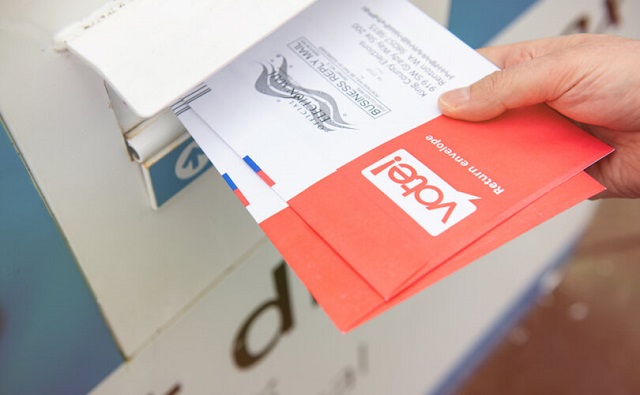
 espionage2 days ago
espionage2 days agoOne in five mail-in voters admitted to committing voter fraud during 2020 election: Rasmussen poll
-

 Business2 days ago
Business2 days agoHonda deal latest episode of corporate welfare in Ontario
-

 Automotive2 days ago
Automotive2 days agoThe EV ‘Bloodbath’ Arrives Early
-

 CBDC Central Bank Digital Currency1 day ago
CBDC Central Bank Digital Currency1 day agoA Fed-Controlled Digital Dollar Could Mean The End Of Freedom
-

 Brownstone Institute1 day ago
Brownstone Institute1 day agoThe Numbers Favour Our Side
-
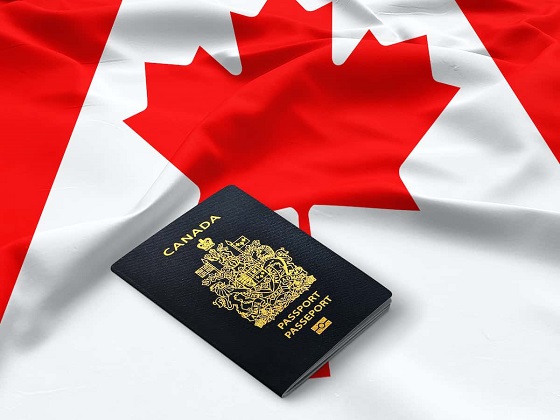
 Frontier Centre for Public Policy23 hours ago
Frontier Centre for Public Policy23 hours agoHow much do today’s immigrants help Canada?
-

 Fraser Institute3 hours ago
Fraser Institute3 hours agoFederal government’s fiscal record—one for the history books
-

 Alberta2 hours ago
Alberta2 hours agoPrincipal at Calgary Elementary School charged with possession of child pornography









